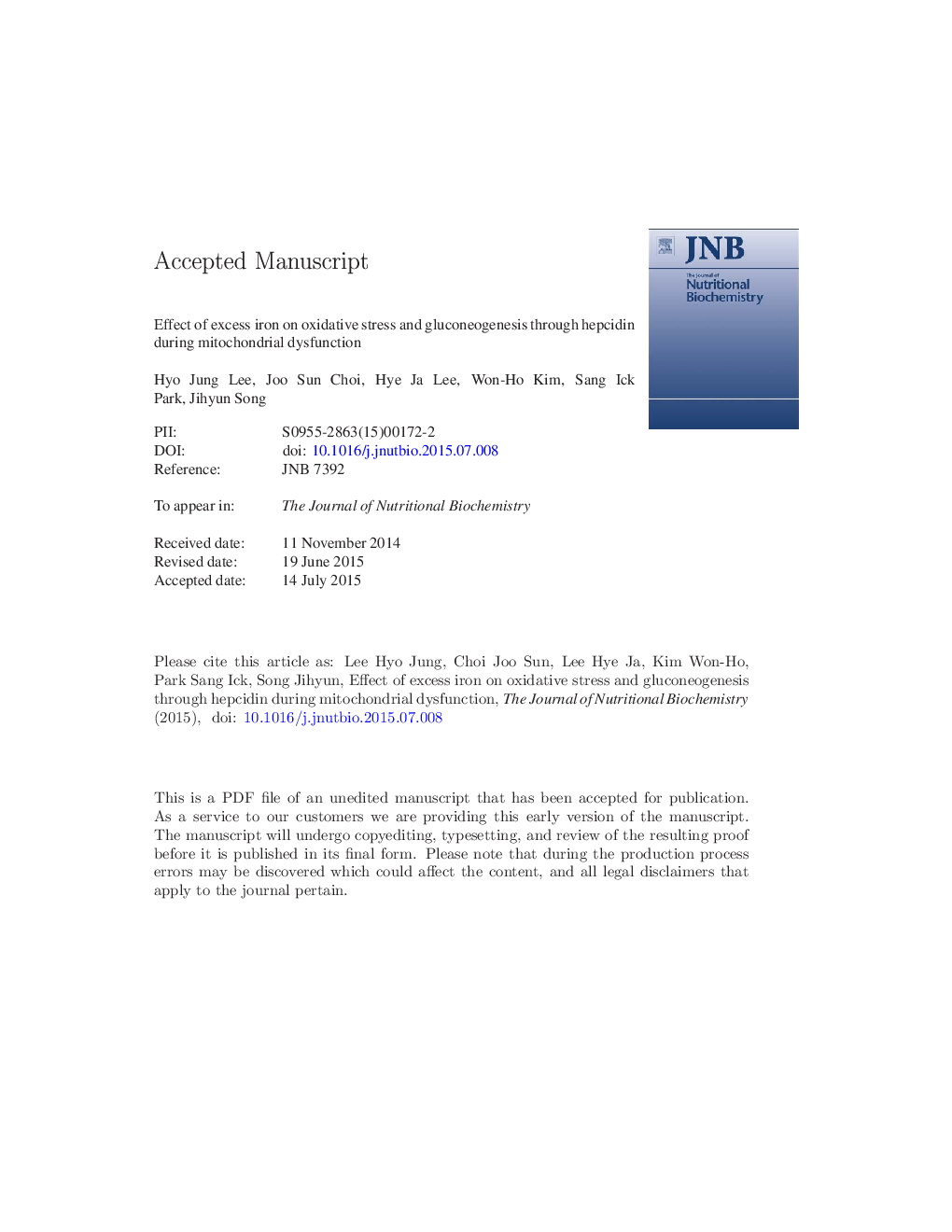| کد مقاله | کد نشریه | سال انتشار | مقاله انگلیسی | نسخه تمام متن |
|---|---|---|---|---|
| 8336745 | 1540642 | 2015 | 37 صفحه PDF | دانلود رایگان |
عنوان انگلیسی مقاله ISI
Effect of excess iron on oxidative stress and gluconeogenesis through hepcidin during mitochondrial dysfunction
ترجمه فارسی عنوان
تاثیر آهن اضافی بر استرس اکسیداتیو و گلوکونوژنز از طریق هپسیدین در هنگام اختلال عملکرد میتوکندری
دانلود مقاله + سفارش ترجمه
دانلود مقاله ISI انگلیسی
رایگان برای ایرانیان
کلمات کلیدی
موضوعات مرتبط
علوم زیستی و بیوفناوری
بیوشیمی، ژنتیک و زیست شناسی مولکولی
زیست شیمی
چکیده انگلیسی
Excessive tissue iron levels are a risk factor for insulin resistance and type 2 diabetes, which are associated with alterations in iron metabolism. However, the mechanisms underlying this association are not well understood. This study used human liver SK-HEP-1 cells to examine how excess iron induces mitochondrial dysfunction and how hepcidin controls gluconeogenesis. Excess levels of reactive oxygen species (ROS) and accumulated iron due to iron overload induced mitochondrial dysfunction, leading to a decrease in cellular adenosine triphosphate content and cytochrome c oxidase III expression, with an associated increase in gluconeogenesis. Disturbances in mitochondrial function caused excess iron deposition and unbalanced expression of iron metabolism-related proteins such as hepcidin, ferritin H and ferroportin during the activation of p38 mitogen-activated protein kinase (MAPK) and CCAAT/enhancer-binding protein alpha (C/EBPα), which are responsible for increased phosphoenolpyruvate carboxykinase expression. Desferoxamine and n-acetylcysteine ameliorated these deteriorations by inhibiting p38 MAPK and C/EBPα activity through iron chelation and ROS scavenging activity. Based on experiments using hepcidin shRNA and hepcidin overexpression, the activation of hepcidin affects ROS generation and iron deposition, which disturbs mitochondrial function and causes an imbalance in iron metabolism and increased gluconeogenesis. Repression of hepcidin activity can reverse these changes. Our results demonstrate that iron overload is associated with mitochondrial dysfunction and that together they can cause abnormal hepatic gluconeogenesis. Hepcidin expression may modulate this disorder by regulating ROS generation and iron deposition.
ناشر
Database: Elsevier - ScienceDirect (ساینس دایرکت)
Journal: The Journal of Nutritional Biochemistry - Volume 26, Issue 12, December 2015, Pages 1414-1423
Journal: The Journal of Nutritional Biochemistry - Volume 26, Issue 12, December 2015, Pages 1414-1423
نویسندگان
Hyo Jung Lee, Joo Sun Choi, Hye Ja Lee, Won-Ho Kim, Sang Ick Park, Jihyun Song,
